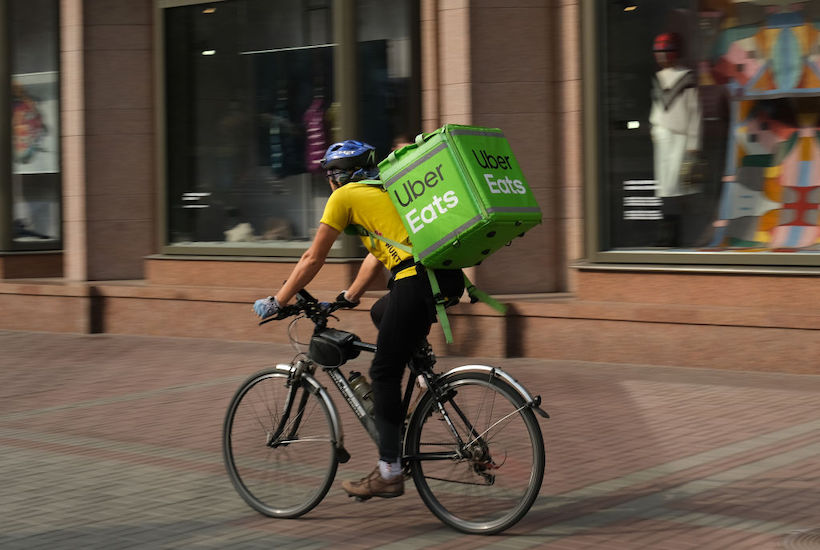You may have seen reports that the UK’s top court has decided that Uber drivers are not independent contractors. Australian unions are excited by this. The UK decision seems to support the union campaign against the gig economy. And it gives the appearance of international support for federal Labor’s anti-gig (anti-small business) policy announced earlier this month.
However, sorry to disappoint the small business–haters in the unions and Labor, but the UK’s decision has no relevance to Australia. The Australian unions’ media campaigning and lobbying is political spin. They are hoping to create similar UK laws in Australia.
The facts in Australia are that Uber drivers have been declared to be independent contractors by:
- Australia’s industrial relations independent umpire, the Fair Work Commission in 2017.
- The Fair Work Ombudsman in 2019.
And last year (2020) the FWC declared that Uber Eats delivery people are independent contractors. In this 2020 decision, the Commission looked at the UK law above and stated that its irrelevant to Australia. Here’s why.
In Australia, we have a clear method for determining whether someone is an employee or independent contractor. We use the well–known common law tests which identify whether there is a commercial contract or an employment contract. All independent contractors (self-employed people) earn their income through a commercial contract. This fact is further locked in under Australia’s Independent Contractors Act 2006. It protects the right of people to be their own boss.
The UK is the historical birthplace of common law, which it also uses to distinguish an independent contractor from an employee. But after the UK joined the EU in 1973, the UK became ‘infected’ by concepts of ‘rights’ law. In 1998 the UK created three integrated statutes that say that even if you’re an independent contractor you can still have access to some employment ‘rights’ such as a minimum hourly rate and holidays. This is the ‘little bit pregnant’ idea. The UK statute says that someone working under a commercial contract can be a ‘little bit’ an employee.
This is the statute that has been ruled upon by the UK Supreme Court last Friday in the Uber case. The ruling explains this (see highlighted sections 34–36). The Uber case started in 2016 with a decision by the London Employment Tribunal. The Supreme Court affirms the London Tribunal decision that even though Uber drivers are independent contractors at common law, they can receive some employment ‘benefits’ under the ‘little bit pregnant’ worker rights statutes.
Unions, anti-gig academics and so on are delighted. They hope to see this spread globally.
Certainly this will give extra impetus to the spread of the Californian AB5 self-employment destruction laws across the USA. President Joe Biden backed AB5 in 2020. The Democrats plan to take this nationally under their ProAct law that will likely pass Congress soon.
But here’s the counter–reaction. Free market economies depend on certainty under law. Create uncertainty and economic behaviour becomes distorted.
The UK has made, and is making, a mess of its treatment of self-employed people. Self-employed UK people have been treated as economic trash during the Covid crisis, receiving little if any income support. For 20 years the UK tax office (HMRC) has been trying to stop the self-employed from having business tax rights. It reached a crisis last year under UK budget rulings. The Uber decision now throws massive uncertainty into commercial contract law. The unknown risks of business in the UK rise massively.
Both the Uber decision and the new UK tax laws have no jurisdiction over the contracting party or the independent contractor if either reside outside of the UK. The pressure is on for UK businesses to move as much of their flexible, commercial, contractor dependent business activities out of the UK. We expect to see a surge of this over the next 18 months.
Following the 2008 global financial crisis, the UK re-built its jobs numbers substantially on the back of a surge in self-employment reaching around 4.8 million in 2017. Now, following the Covid and tax mistreatments and the new illogic around self-employment legal status, we can expect this UK jobs and economic growth trend to collapse.
Fortunately, in Australia since around 2006, we’ve developed policies to support and ‘protect’ self-employed people and treat them with respect. This has included the same access as employees to the federal parental leave scheme (2010), JobKeeper and JobSeeker (2020) and the introduction of unfair contract laws (2016) and their planned ‘beefing up this year. Also, this year the full pay–on–time laws for small business should pass.
This is what should occur. We don’t ‘protect’ people by destroying their small business. We don’t ‘protect’ people by stopping larger businesses doing business with small businesses. That’s what’s happened in the UK and California and what’s planned for across the USA.
We ‘protect’ small business people by giving them access to a practical commercial ‘rule of law’ environment, backed by sensible access to social security support where needed. This creates a stronger economy with small business at its core. Let’s hope that the UK small business destruction disease doesn’t spread to Australia.
Ken Phillips is Executive Director of Self Employed Australia.
Got something to add? Join the discussion and comment below.
Get 10 issues for just $10
Subscribe to The Spectator Australia today for the next 10 magazine issues, plus full online access, for just $10.


























Comments
Don't miss out
Join the conversation with other Spectator Australia readers. Subscribe to leave a comment.
SUBSCRIBEAlready a subscriber? Log in